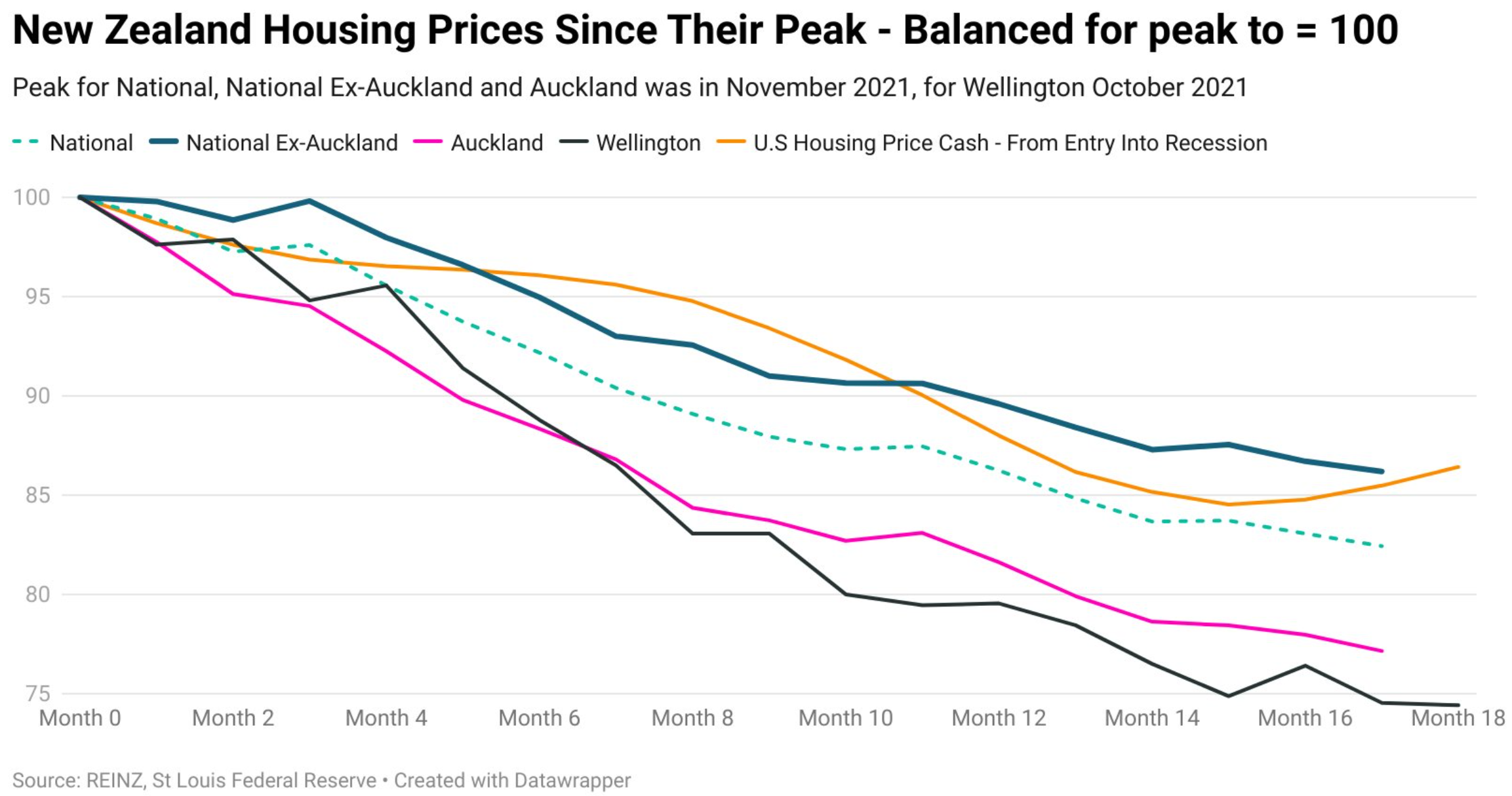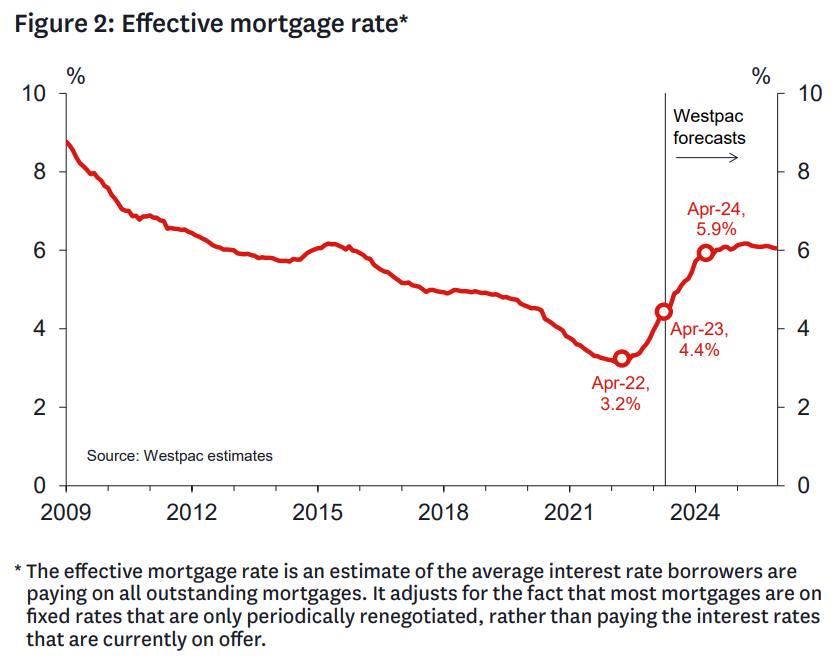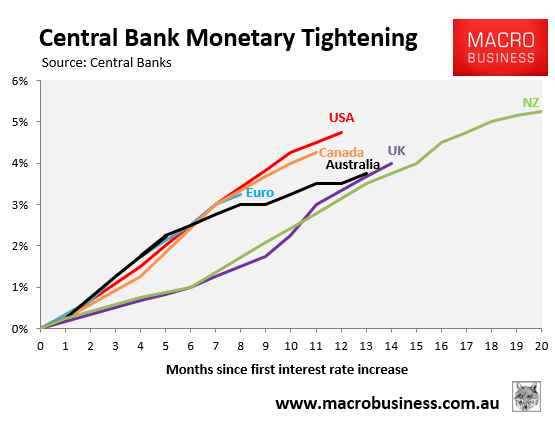The latest Real Estate Institute of New Zealand house price index showed that values nationally have fallen 17.6% from their November 2021 peak, led by Auckland (-22.8%) and Wellington (-25.6%):

This decline in house prices has been driven by the Reserve Bank of New Zealand’s ultra aggressive interest rate hikes, which has seen official interest rates lift higher than almost any other developed economy.
In turn, effective mortgage rates have soared – a situation that will worsen as huge volumes of fixed rate mortgages expire and reset to rates of around 6%:

Source: Westpac
On Wednesday, the Reserve Bank shocked mortgage holders again delivering its 11th consecutive rate hike, which lifted the official cash rate (OCR) by 0.25% to 5.50%:

In coming to its decision, the Monetary Policy Committee stated the “OCR will need to remain at a restrictive level for the foreseeable future, to ensure that consumer price inflation returns to the 1% to 3% annual target range, while supporting maximum sustainable employment”.
“Core inflation pressures will remain until capacity constraints ease further”.
“While employment is above its maximum sustainable level, there are now signs of labour shortages easing and vacancies declining”, the statement reads.
“Consumer spending growth has eased and residential construction activity has declined, while house prices have returned to more sustainable levels”.
“More generally, businesses are reporting slower demand for their goods and services, and weak investment intentions”.
“Businesses report that a lack of demand, rather than labour shortages, is now the main constraint on activity”.
New Zealand’s GDP fell by 0.6% in the December quarter, and most economists expect the economy to have slid into a technical recession in the March quarter.
The Reserve Bank’s latest rate hike will ensure that the recession will be deeper and longer, while also placing further downward pressure on house prices.

